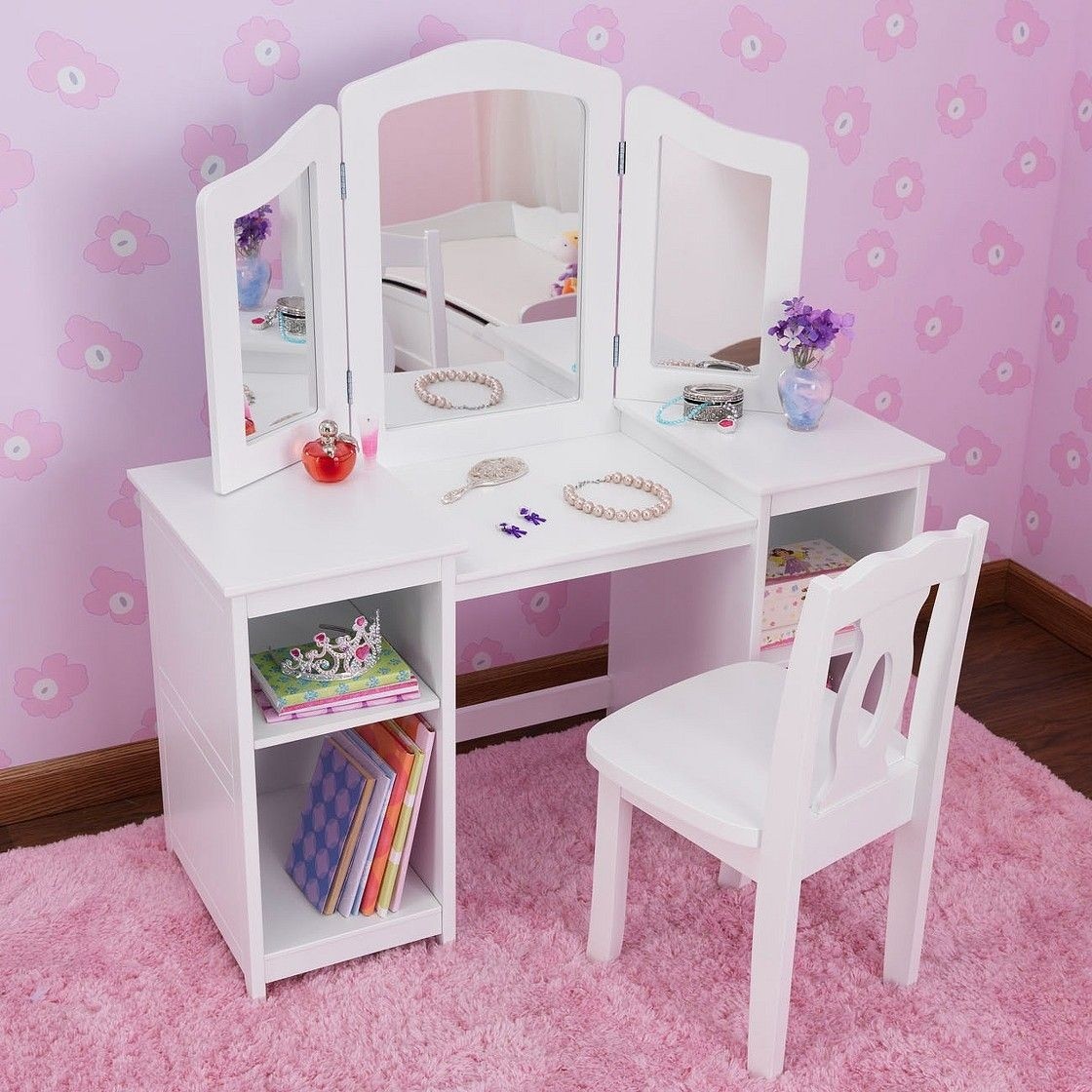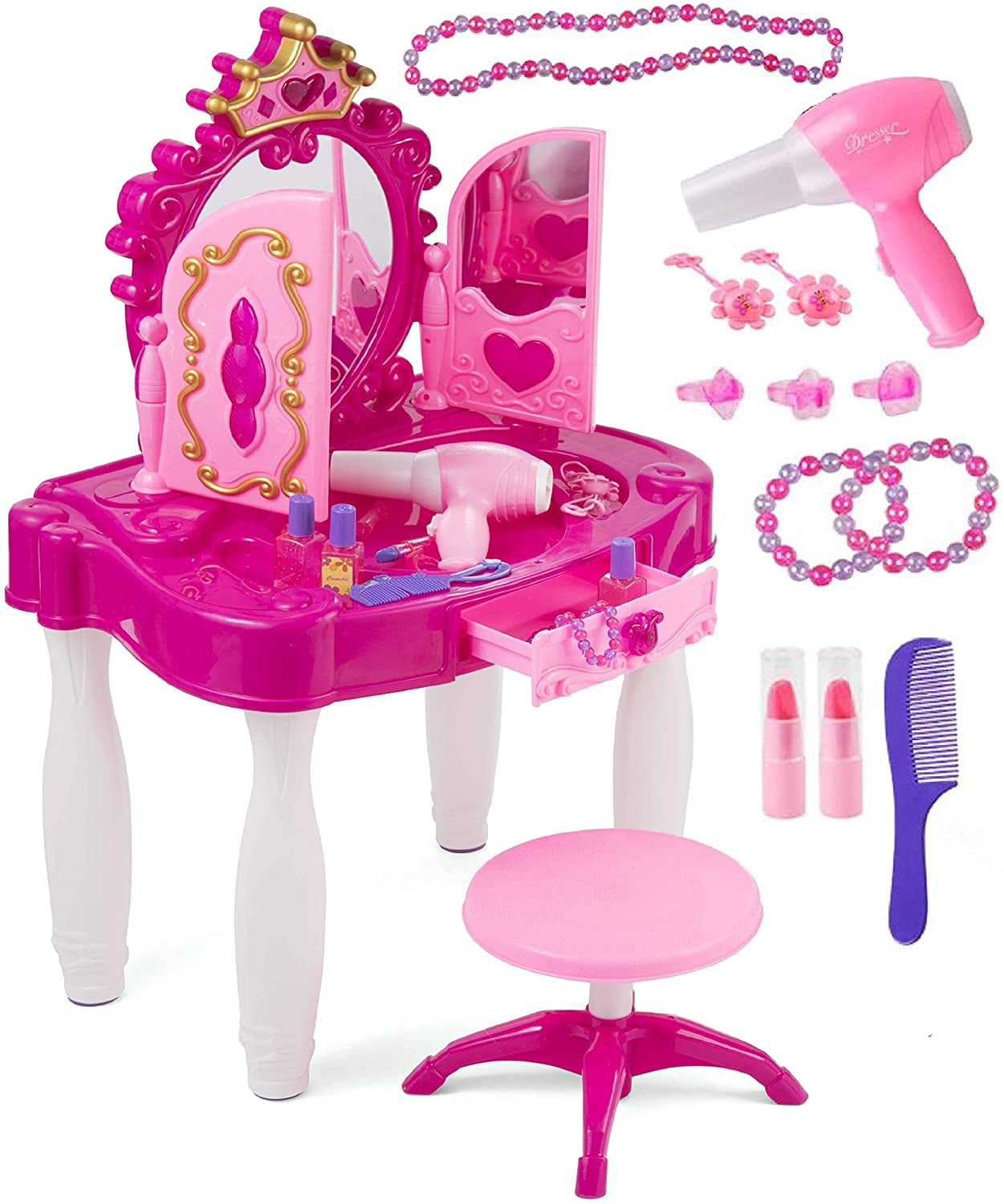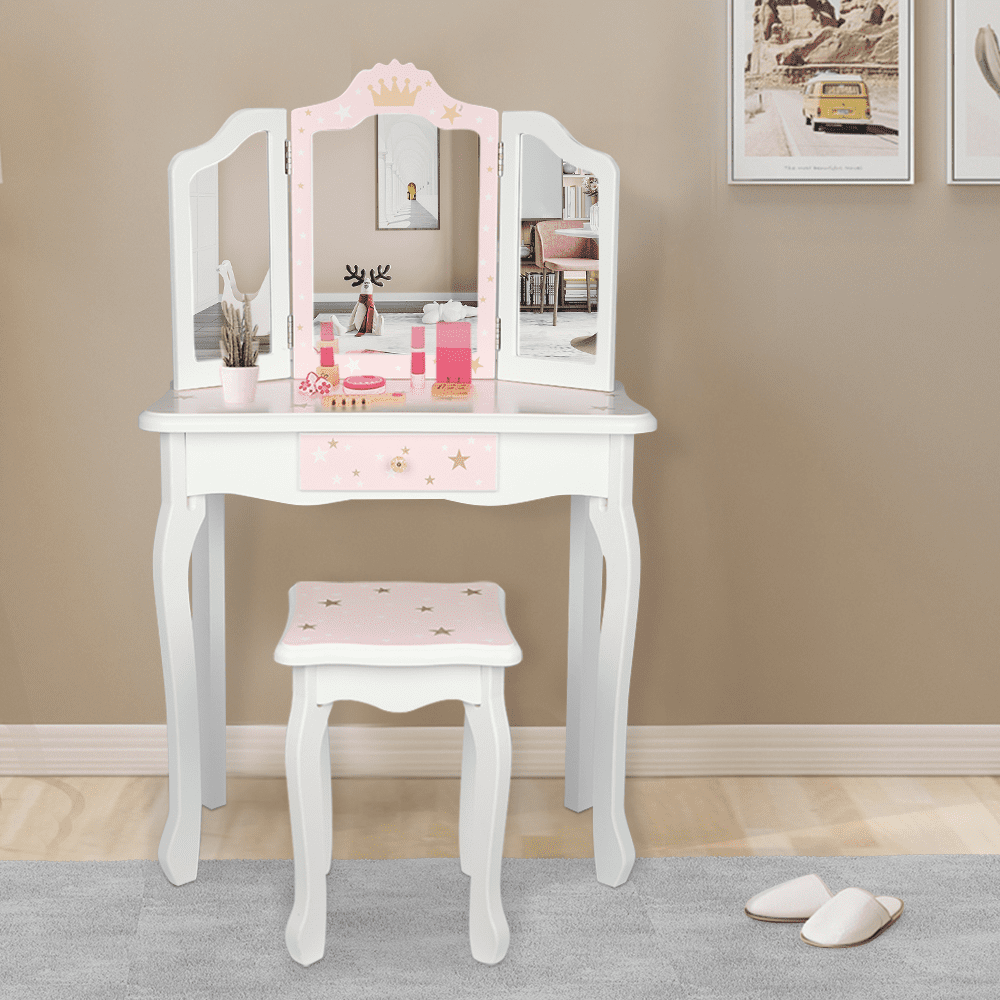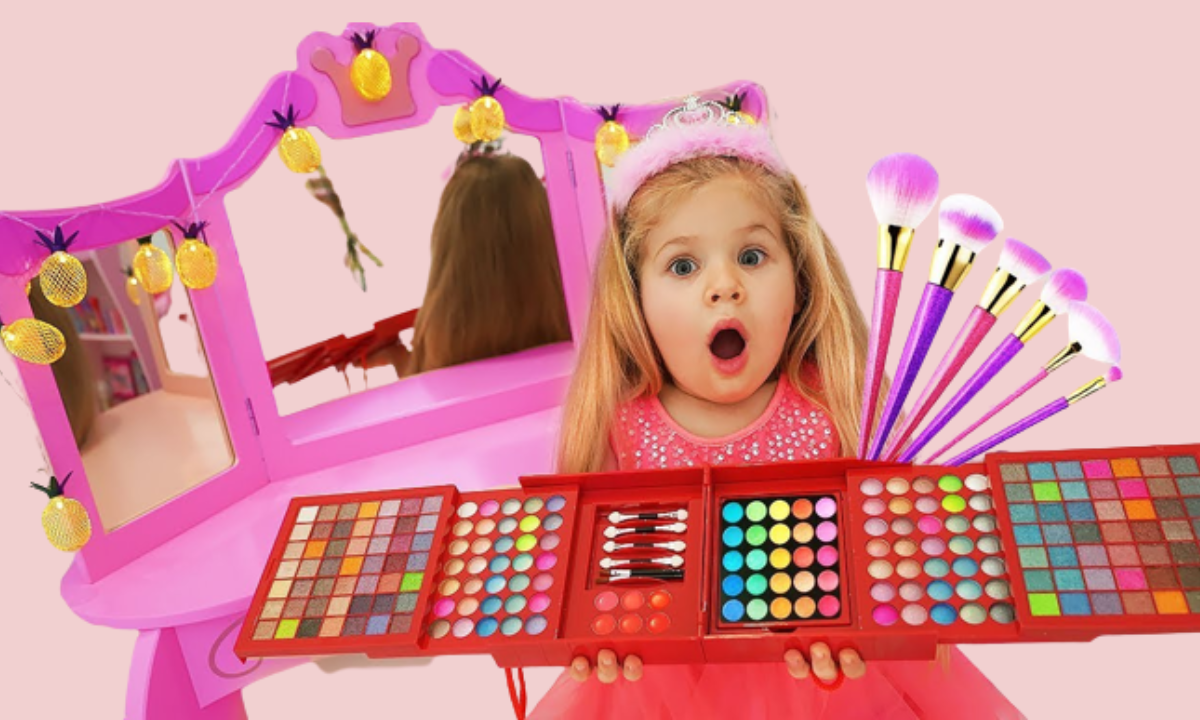A Guide to Makeup Tables for Kids: Fostering Creativity and Confidence
Related Articles: A Guide to Makeup Tables for Kids: Fostering Creativity and Confidence
Introduction
With enthusiasm, let’s navigate through the intriguing topic related to A Guide to Makeup Tables for Kids: Fostering Creativity and Confidence. Let’s weave interesting information and offer fresh perspectives to the readers.
Table of Content
A Guide to Makeup Tables for Kids: Fostering Creativity and Confidence

In the realm of childhood play, imagination knows no bounds. Children often mimic the adults around them, engaging in pretend play that mirrors real-life scenarios. One such scenario is the world of makeup and beauty, where children explore self-expression and creativity. A dedicated makeup table for kids can serve as a valuable tool in this exploration, providing a designated space for imaginative play and fostering a sense of self-confidence.
The Importance of Play-Based Learning:
Play is not merely a pastime for children; it is a fundamental learning process. Through play, children develop crucial skills such as problem-solving, critical thinking, social interaction, and emotional regulation. Play-based learning, particularly with toys that encourage role-playing, helps children understand the world around them, develop their imaginations, and build confidence in their abilities.
The Benefits of a Makeup Table for Kids:
A dedicated makeup table for kids can offer a multitude of benefits, enriching their play experiences and fostering personal development:
- Creative Expression: A makeup table provides a space for children to explore their artistic side. Using pretend makeup, brushes, and accessories, they can experiment with colors, textures, and styles, expressing their individuality and creativity.
- Social Interaction: Play with a makeup table can encourage social interaction among children. They can engage in role-playing scenarios, mimicking real-life beauty routines and engaging in imaginative conversations about makeup and fashion.
- Confidence Building: As children engage in pretend play with makeup, they develop a sense of self-confidence and independence. They learn to express themselves freely, experiment with different looks, and embrace their unique beauty.
- Fine Motor Skills Development: Using makeup brushes, applying pretend lipstick, and organizing accessories all contribute to the development of fine motor skills. These skills are crucial for writing, drawing, and other activities that require precise hand movements.
- Imagination and Story Telling: A makeup table serves as a catalyst for imaginative play and storytelling. Children can create elaborate narratives around their pretend makeup routines, developing their language skills and storytelling abilities.
- Self-Care and Hygiene: While using pretend makeup, children learn about the importance of hygiene and self-care. They can practice applying makeup, removing it, and cleaning their tools, fostering healthy habits from a young age.
Choosing the Right Makeup Table for Your Child:
When choosing a makeup table for your child, consider the following factors:
- Age and Interests: Opt for a table that aligns with your child’s age and interests. Younger children may enjoy a smaller table with a simple design, while older children may appreciate a more elaborate table with storage compartments.
- Safety: Ensure that the table is made from safe materials and has rounded edges to prevent injuries. Look for sturdy construction and stable legs to prevent tipping.
- Storage Space: Choose a table with adequate storage space for makeup, brushes, and accessories. Drawers, shelves, and compartments can help keep everything organized and readily accessible.
- Style and Design: Consider your child’s preferences when selecting the table’s style and design. Choose a color, theme, or design that resonates with their personality and interests.
- Budget: Makeup tables for kids come in a wide range of prices. Set a budget and look for a table that offers good value for your investment.
Tips for Using a Makeup Table:
- Set Boundaries: Establish clear boundaries for using the makeup table. Define specific times for play and ensure that the child uses only pretend makeup.
- Supervise Play: Supervise your child’s play to ensure their safety and prevent them from using real makeup or engaging in inappropriate activities.
- Encourage Creativity: Encourage your child to experiment with different looks, colors, and styles. Let their imagination run wild and celebrate their unique creativity.
- Promote Positive Body Image: Emphasize that makeup is for fun and self-expression, not for changing one’s appearance or comparing oneself to others. Encourage a positive body image and acceptance of individuality.
- Clean Up: Teach your child to clean up after themselves and put away their makeup and accessories. This promotes responsibility and helps maintain a tidy play area.
FAQs about Makeup Tables for Kids:
Q: What age is appropriate for a makeup table?
A: A makeup table can be suitable for children as young as three or four years old, as long as they are supervised and use only pretend makeup. However, younger children may not have the fine motor skills required for applying makeup, so it is important to provide them with age-appropriate activities.
Q: What kind of makeup should I use for my child’s makeup table?
A: It is essential to use only pretend makeup designed specifically for children. These products are typically made with non-toxic ingredients and are free from harsh chemicals that could irritate sensitive skin.
Q: Is it okay for my child to play with makeup?
A: Play with pretend makeup can be a fun and enriching experience for children. It allows them to explore their creativity, develop their imagination, and learn about self-expression. However, it is crucial to set boundaries and supervise their play to ensure safety and prevent them from using real makeup.
Q: How can I encourage my child to use a makeup table?
A: You can encourage your child to use a makeup table by making it a fun and inviting space. Decorate the table with colorful accessories, set up a designated play area, and involve them in choosing the table’s design and decorations.
Conclusion:
A makeup table for kids can be a valuable addition to any playroom or bedroom. It offers a dedicated space for imaginative play, fosters creativity and confidence, and provides opportunities for learning and development. By choosing a safe and age-appropriate table and encouraging responsible play, parents can help their children explore their artistic side, express themselves freely, and develop their unique personalities.








Closure
Thus, we hope this article has provided valuable insights into A Guide to Makeup Tables for Kids: Fostering Creativity and Confidence. We appreciate your attention to our article. See you in our next article!